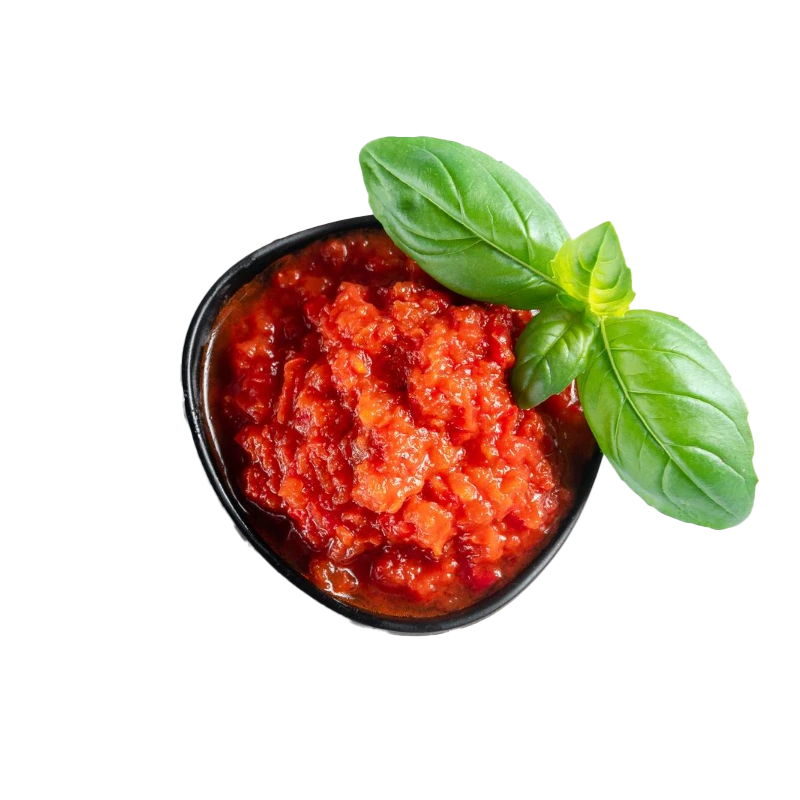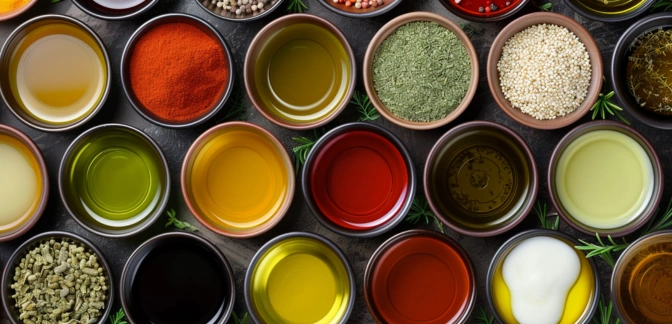Spaghetti Sauce — Nutrients, Health Benefits, And Shopping Tips

Written by Listonic Team
Last update on September 4, 2024
Spaghetti sauce nutrients
Nutrition facts
Amount per 100 g
Calories
🔥 80 kcal
| Nutrition per: 100 g | Value | % Daily Value* |
|---|---|---|
| Carbs | 13 g | 4.73% |
| Fiber | 2 g | 7.14% |
| Sugars | 8 g | 16% |
| Glycemic Index | 45 | - |
| Protein | 2 g | 4% |
| Sodium | 400 mg | 17.39% |
| Total Fat | 3 g | 3.85% |
*The % of Daily Value (DV) tells you how much a nutrient in a serving of food contributes to a daily diet. 2,000 calories a day is used for general nutrition advice.
45
🟢 Low Glycemic Index
3 g
🥕 Low Fat Content
Spaghetti sauce facts & tips
Health benefits
- Rich in vitamins and minerals from tomatoes and other vegetables, such as Vitamin C, Vitamin A, and potassium.
- Contains antioxidants such as lycopene from tomatoes, which help protect the body from free radicals and reduce the risk of chronic diseases.
- Low in calories, making it a healthy addition to pasta and other dishes.
- Versatile and nutritious, allowing for the inclusion of various vegetables, lean proteins, and healthy fats.
Health risks
- High sodium content in many commercial spaghetti sauces, which can contribute to hypertension and increased cardiovascular risks.
- High sugar content in some commercial sauces, which can contribute to weight gain, tooth decay, and increased risk of diabetes when consumed frequently.
- Potential for artificial additives such as preservatives, flavorings, or colorings in some commercial spaghetti sauces, which may cause adverse reactions in sensitive individuals.
- Low nutrient density particularly in sauces with little actual vegetable content, offering limited vitamins or minerals.
How to choose spaghetti sauce
A good spaghetti sauce should have a deep red color and a thick consistency, indicating it has been simmered to develop flavor. The aroma should be rich with tomatoes and herbs, enticing and robust.
Avoid spaghetti sauces that are watery or have an overly sharp acidic taste, which can suggest undercooked tomatoes or an imbalance in seasoning. Sauces that contain artificial preservatives or have a metallic taste should also be avoided.

How to store spaghetti sauce
Spaghetti sauce should be stored in the refrigerator in an airtight container after opening. Refrigeration maintains its flavor and prevents spoilage for up to a week. Always ensure the lid is tightly closed after each use.
Leaving spaghetti sauce at room temperature can lead to rapid spoilage. Avoid using dirty utensils to scoop it out, as this can introduce bacteria. Always transfer sauce to a clean container if not using the original jar to maintain its quality.
✅ Extra Tip
How long does it last?
Spaghetti sauce can last for 1-2 years unopened when stored in a cool, dark place. Once opened, it should be refrigerated and used within 5-7 days. For longer storage, spaghetti sauce can be frozen for up to 3 months.
What to do with leftovers?
Leftover spaghetti sauce can be used in a variety of savory dishes. Mix it into a pasta bake or lasagna with layers of pasta, cheese, and meat, or use it as a topping for pizzas or flatbreads. Spaghetti sauce is also great when added to soups, stews, or casseroles for added depth of flavor.
Use spaghetti sauce as a base for a shakshuka by simmering eggs in the sauce with spices and herbs, or mix it into a sloppy joe filling with ground meat. If you have a lot of spaghetti sauce, consider freezing it in portions for easy meals later. Spaghetti sauce can also be used as a dipping sauce for breadsticks, garlic bread, or mozzarella sticks, or mixed into a meatball or meatloaf mixture for added moisture and flavor. For a quick snack, reheat spaghetti sauce and serve it with crusty bread, over pasta, or as a dip for vegetables.
👨⚕️️ Medical disclaimer
Discover products from other categories
Listonic Team
Fact-checked
Our editorial team checked this article to make sure it was accurate at the time of publishing it.
Get the top-rated shopping list app

spaghetti sauce
1 piece
Outline







